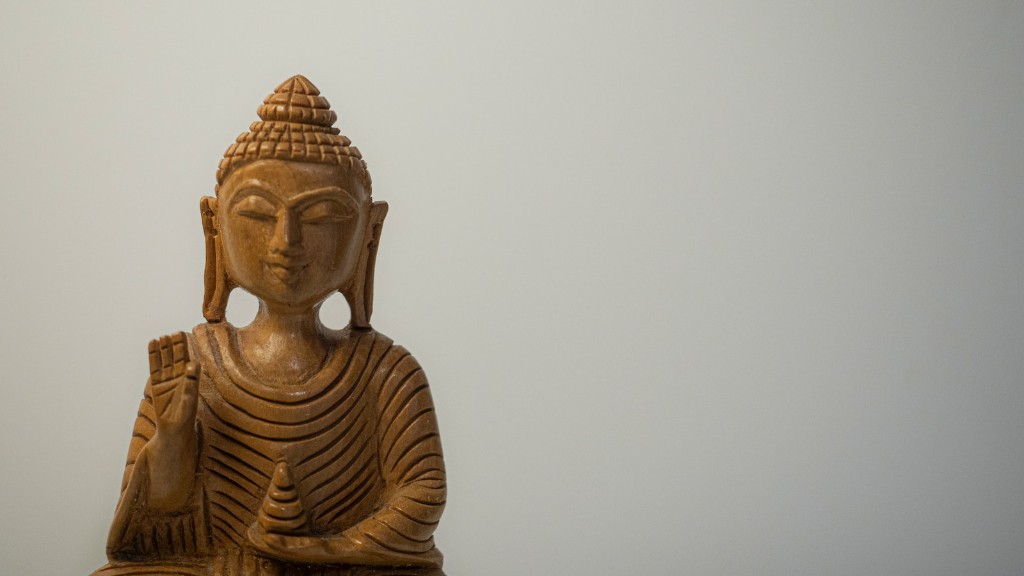Overview
Hinduism is a polytheistic religion that almost all scholars agree is one of the oldest in the world. It is thought to have originated in the Indian subcontinent somewhere between the 5th and 4th millenia BCE. It is a religion of multiple Gods and Goddesses, often called devas. Estimates of the exact number of deities worshipped in Hinduism vary greatly, depending on which scriptures one considers. Scholarly estimates range from 36 to more than one million deities.
Rig Veda
The most ancient of the Hindu scriptures – the Rig Veda – mentions 33 Gods. These Gods are divided amongst the sky, earth, and underworld. Additionally, there are other Gods not mentioned in the Rig Veda, such as Kali and Ganesha. However, Hinduism is a constantly evolving faith that has been influenced and adapted by various other cultures and traditions over time.
Early Cults
Throughout the centuries, Hinduism developed a multitude of different cults, each of which worshipped its own set of Gods. However, the God who held the place of the Supreme Being was usually Brahma, Vishnu, or Shiva. This triad of Gods were sometimes recognized as having different aspects representing different aspects of the Supreme Being and sometimes regarded as a single being with different personalities.
Common Deities
It is difficult to estimate an accurate count of all of the Gods worshipped in Hinduism, as many regional and local cults may worship a unique set of deities. Generally, though, it seems that there are around 315 common deities who are recognized by most Hindus. This figure includes Brahma, Vishnu, and Shiva, along with the countless forms and incarnations of the Mahadevi, or Great Goddess.
Regional Deities
In addition to the 315 common deities, there are also numerous regional and local deities who are worshipped by many Hindus. These Gods are usually specific to a certain area and are not worshippped by Hindus living in other parts of the world. Many of these local deities are associated with a particular geographic area, such as a mountain or a lake, or with a certain cultural tradition, such as a particular occupation or craft.
Familiarity
Due to the complexity of Hinduism and its wide array of Gods and Goddesses, it is impossible for most Hindus to be familiar with all of the different deities that their religion recognizes. As a result, Hindus often pick and choose which Gods they are most devoted to, though they will still pay homage to all the major Gods, including Brahma, Vishnu, and Shiva.
Worship of the Divine
Hindus worship the divine in a variety of ways, depending on the particular deity they are venerating. Common rituals involve offering flowers, incense, and food to images or statues of the chosen deity. Additionally, some Hindus may chant mantras or make pilgrimages to temples dedicated to a specific God or Goddess.
Sudarshana Yantra
Sudarshana is a specific divine form of Vishnu, who is known as the Preserver of the Universe. Hindus devotees may worship Sudarshana using the Sudarshana Yantra, which is a geometric representation of the God that is used for meditation and ritual devotion towards Vishnu. The Yantra is believed to help unlock spiritual energy and bring blessings from the God.
Growth and Expansion of Hinduism
Hinduism has grown and expanded over time, adding numerous new Gods and Goddesses along the way. As the faith has crossed over local boundaries and been embraced by people around the world, its divine pantheon has been enriched with new Gods and Goddesses representing different regions and different traditions.
Diversity of Beliefs
The diversity of deities worshipped in Hinduism reflects the immense diversity of beliefs and practices that constitute the Hindu faith. Hinduism is an incredibly broad and inclusive religion that has been adapted and adapted by many different cultures over the centuries. As a result, Hinduism is an exceptionally complex faith, with a multitude of Gods, Goddesses, and religious practices.
Puranas and Agamas
The Puranas and the Agamas are two collections of Hindu religious texts that have influenced the faith over the centuries. The Puranas mention more than 33,000 Gods and Goddesses, many of whom are specific to a certain region or religious tradition. Meanwhile, the Agamas are a collection of ritual and theological texts pertaining to the various manifestations of the Divine, including Brahma, Vishnu, and Shiva.
Vaishnavism, one of the major branches of Hinduism, has had a major impact on how many Hindus view the divine. Vaishnavism is centred on the worship of Vishnu and his many forms, including the avatars Krishna and Rama. Devotees of Vaishnavism typically recognize multiple Gods and Goddesses, but will usually put Vishnu at the centre of their devotional activities.
Conclusion
Hinduism is a vast and ancient religion that no scholar can fully define or contain. Over the centuries, it has developed a vast cosmic pantheon of Gods and Goddesses, some of which have been embraced by Hindus around the world and others which are venerated only by local cults. Estimates of the exact number of deities worshipped in Hinduism vary greatly, depending on which scriptures are used to count them, and which regional and local traditions are taken into account. Scholars agree that the minimum number of Gods and Goddesses worshipped by Hindus is around 36, while some sources suggest the number is closer to one million. Whatever the true number may be, it is clear that Hinduism recognizes an immense diversity of Deities, and that this divine pantheon continues to expand and evolve over time.
